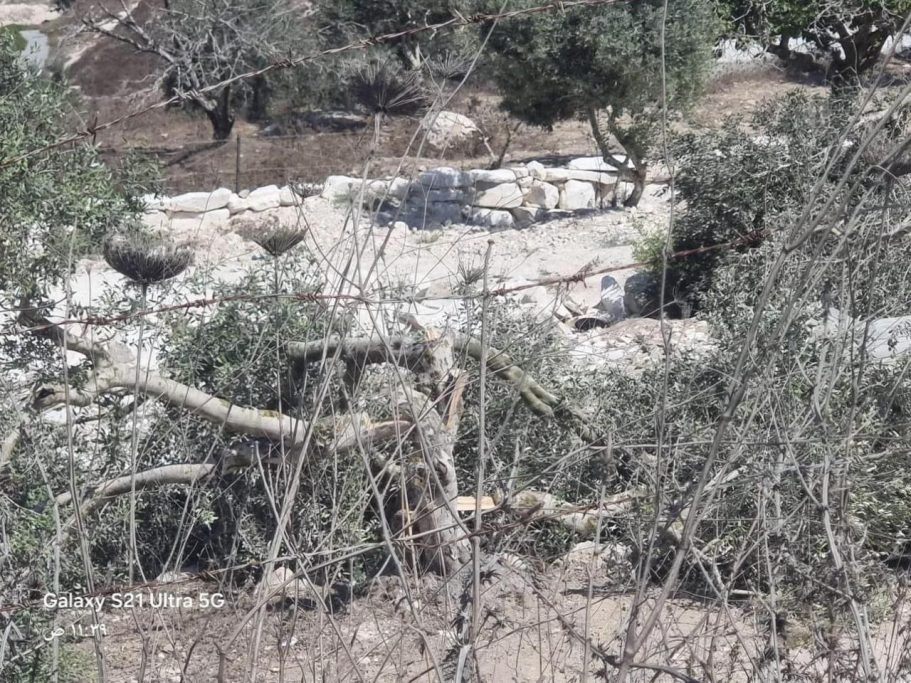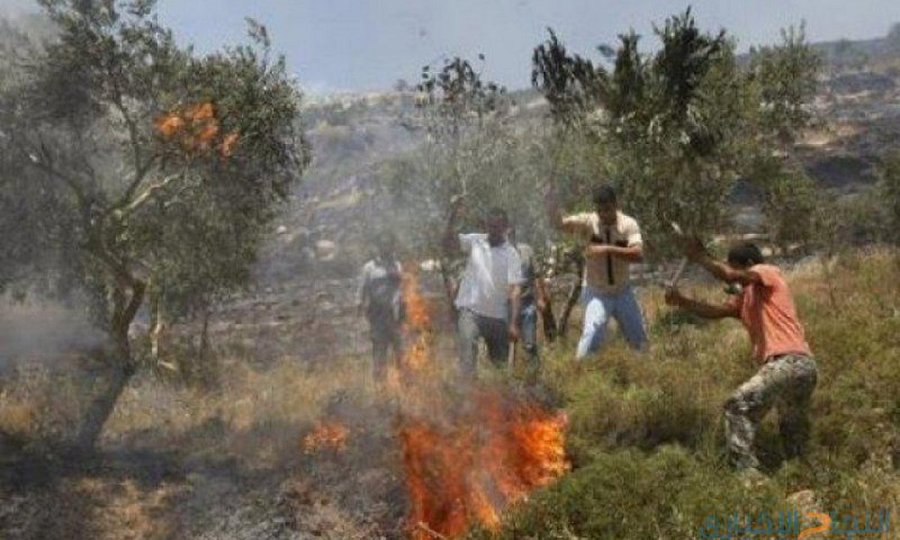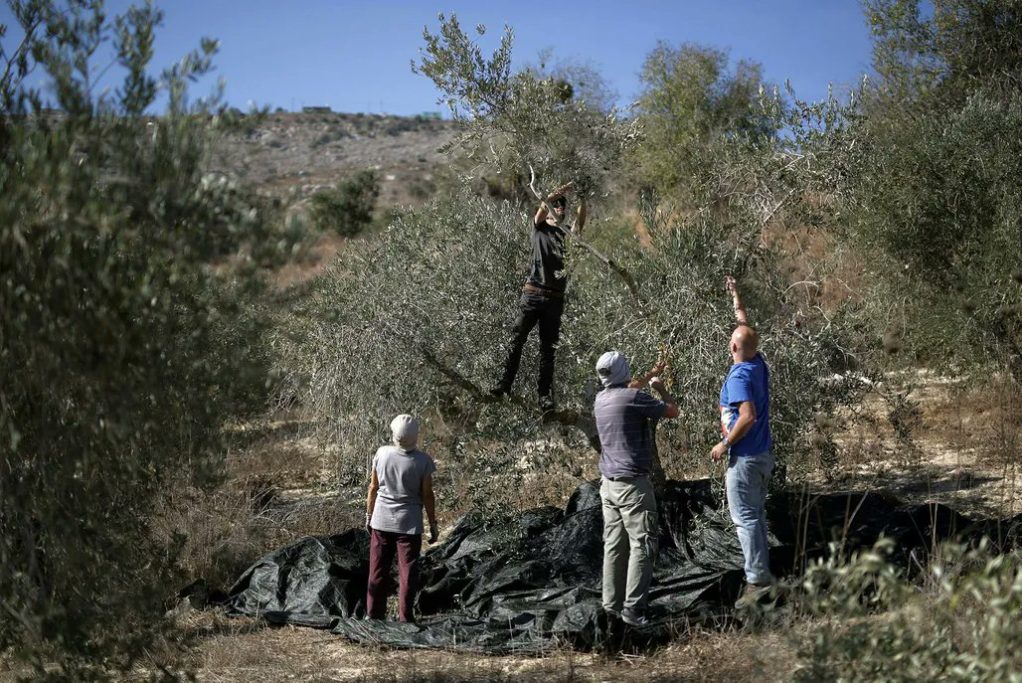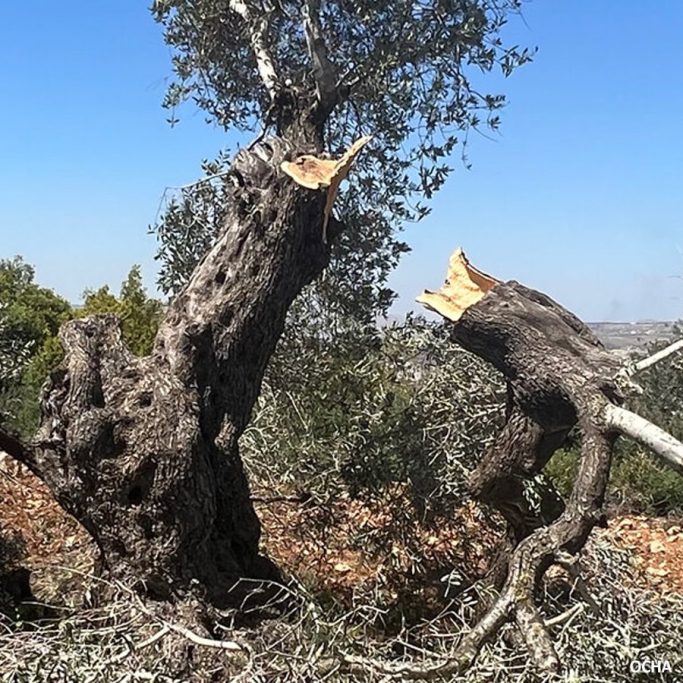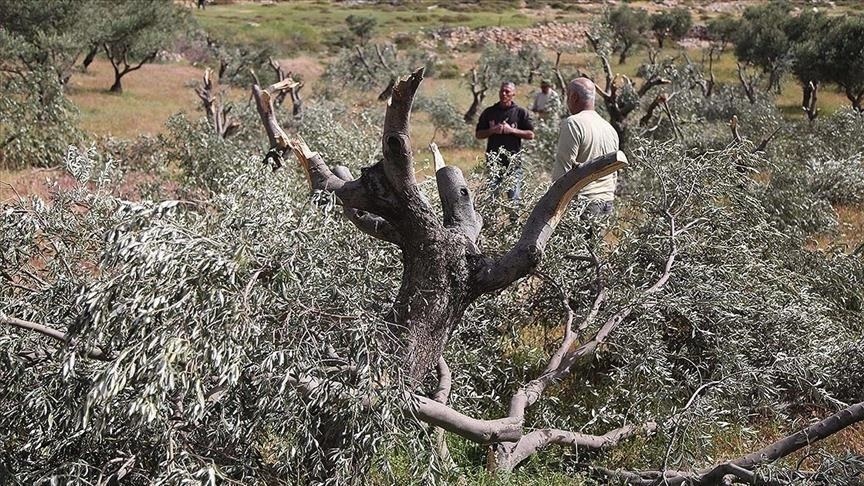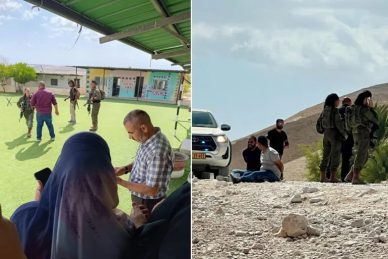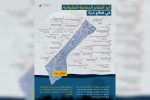JENIN, (PIC)
The olive sector in Palestine faces numerous dangers, the most significant of which are settler attacks and occupation measures that prevent farmers from accessing their lands to harvest their olive crops.
In 2023, coinciding with the onset of aggression against the Gaza Strip, farmers were unable to harvest from approximately 60,000 dunums behind the separation wall and around settlements, resulting in a loss of about 10% of total production.
The Palestinian Ministry of Agriculture anticipates that, with the escalation of occupation measures and settler attacks, farmers will not be able to access 80,000 dunams of olive-growing land, which could lead to a loss of around 15% of production. Since 2012, about 278,000 olive trees have been damaged or destroyed due to occupation measures and settler attacks, while farmers are prohibited from reaching vast areas located behind the wall and around settlements. Additionally, settlers have stolen crops in several areas.
On Tuesday, the Ministry of Agriculture issued an advisory bulletin regarding the optimal time for harvesting olives, announcing the start of the season on October 10.
The Ministry explained that to achieve the best quantity of olives and the highest quality oil, an optimal harvest time is determined annually based on scientific and technical data. Key factors include: the amount of solar radiation, temperature during winter (which affects the growth of vegetative and floral buds), temperature during the ripening season post-flowering until harvest, fruit color change, fruit firmness and ease of detachment, rainfall, supplementary irrigation (if available), type of bearing (alternate or consistent), tree load, soil type, geographical location, planting conditions (sunny or shaded), various agricultural practices (plowing, fertilization, pruning, etc.), pH level, and peroxide levels at this time compared to previous years, among other factors.
Looming risks for the olive season
Mawood Al-Saifi, an activist and director of the Land Research Center in Nablus, warned today, Wednesday, about the imminent dangers facing the olive season this year amid ongoing and expected settler attacks.
Al-Saifi said in press remarks that “all indicators point to a season that could be described as bloody, given the rise in the number of martyrs from settler gunfire to 22 since the start of the Al-Aqsa Flood Battle, most of whom are farmers.”
He explained that there is a risk of losing vast areas of Palestinian land planted with olives due to the inability to access them, particularly since there is no coordination this year for reaching areas adjacent to settlements, unlike last year, according to the SANAD news agency.
Al-Saifi noted that 91 locations in the West Bank need coordination to allow farmers to reach their lands and harvest olives. He mentioned that about 20% of olive-growing land was not harvested last year, expecting this percentage to double due to the occupation’s approach of treating Area B like Area C, along with the lack of coordination that existed in previous years.
He cited the town of Aqraba as an example, which was deprived last year of harvesting approximately 1,500 dunums of olive land due to the lack of coordination for accessing the land and collecting the crop.
The director of the Land Research Center predicted this year’s olive yield to be between 15,000 and 17,000 tons, especially in light of the absence of any product from the Gaza Strip due to the ongoing genocide.
Jenin leads annual production rate
Fayyad Fayyad, the director general of the Palestinian Olive and Olive Oil Council, said that the yield of olive trees in northern, western, and southern Jenin is nearly complete. In eastern areas of the governorate, the yield is good but lower than in other regions.
According to Fayyad’s media statements, the estimates for the season in the Tulkarem and Salfit governorates are “excellent,” while in Nablus, the yield estimates range between 40% and 50%, and in Ramallah and Al-Bireh, it rises to between 60% and 70%.
In the south Jerusalem, Bethlehem, and al-Khalil estimates are low, not exceeding one-third of the annual average, while production in the Gaza Strip is not expected to exceed 10% of the average, or perhaps zero, due to the destruction of olive farms and the inability to harvest what remains due to the genocide being perpetrated by Israel against the Strip for nearly a year.
In numerical terms, Fayyad reported that Jenin leads the annual production rate with about 5,500 tons, followed by Tulkarem with 3,500 tons, and then Nablus, Ramallah, Salfit, and Gaza, each with around 3,000 tons. Qalqilya produces about 1,500 tons, al-Khalil around 1,000 tons, Bethlehem 600 tons, and Jerusalem about 200 tons, while Jericho’s olive oil production is nearly zero.
Losses of $10 million
In a report, the United Nations Office for the Coordination of Humanitarian Affairs in the occupied Palestinian territories confirmed that the olive harvesting season for 2023 was difficult for Palestinian farmers, particularly in the West Bank. After October 7, Palestinians across the West Bank faced escalating movement restrictions and violence from Israeli forces and settlers.
According to the report, this resulted in significant challenges for Palestinian olive harvesters, as they often could not access olive trees. More than 96,000 dunums of land planted with olive trees across the West Bank remained unharvested after the 2023 olive picking season due to Israeli restrictions on Palestinian access. This area includes olive trees planted in four types of locations:
- Behind the wall surrounding the West Bank, in what is called the buffer zone.
- On the border with the wall, 150 meters from the West Bank side.
- Near settlements, where military permits (referred to as prior coordination) were traditionally required.
- In other areas adjacent to settlements.
The UN report added that in previous years, Israeli authorities required what is called prior coordination, an Israeli military permit that allows farmers to access their lands in certain areas. However, during the 2023 olive picking season, Israeli authorities revoked nearly all of these approvals, effectively preventing farmers from reaching their lands. Agricultural gates along the wall surrounding the West Bank remained largely closed.
According to the food security sector, a partnership among dozens of humanitarian organizations, Palestinian farmers incurred total losses exceeding 1,200 metric tons of olive oil during the 2023 olive picking season, leading to a direct economic setback of $10 million. The governorates of Tulkarem, Qalqilya, and northern Nablus were particularly severely affected.
It is noted that the local consumption rate in Palestine is about 15,000 tons, which decreases in some years to 13,000 tons and rises in others to 18,000 tons depending on prices and their compatibility with citizens’ purchasing power, while about 500 tons are exported to Jordan and between 3,000 to 5,000 tons to Gulf countries, mostly as gifts for relatives and rights and shares for landowners from expatriates, and between 1,000 to 2,000 tons are commercial exports to global markets through companies, which collectively nearly equal the annual production rate in Palestine.
